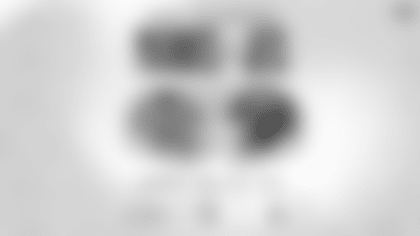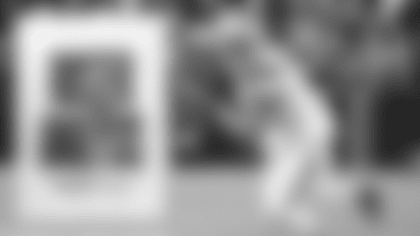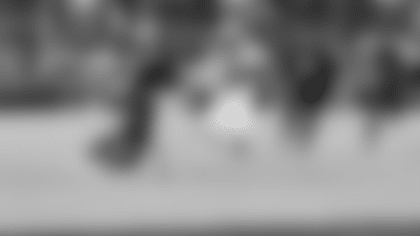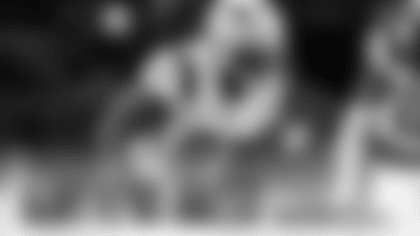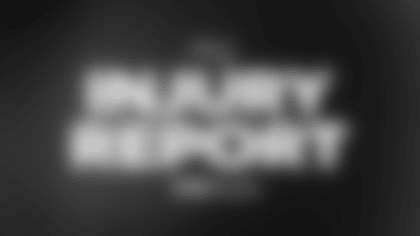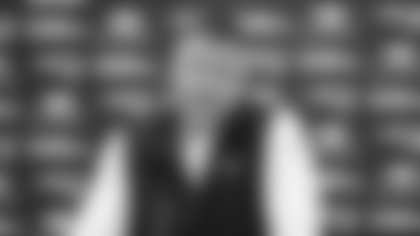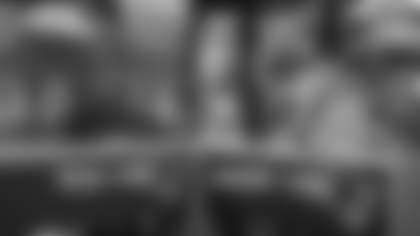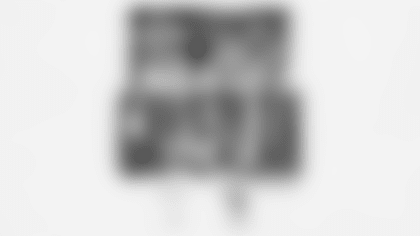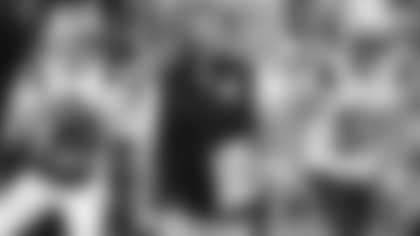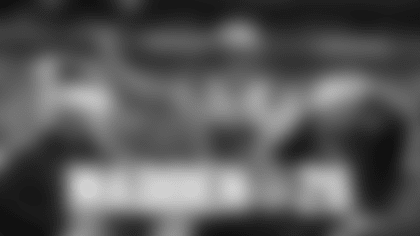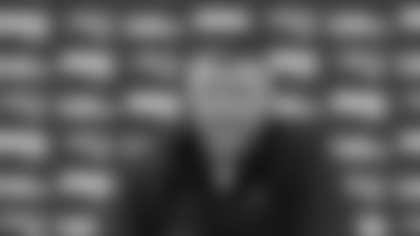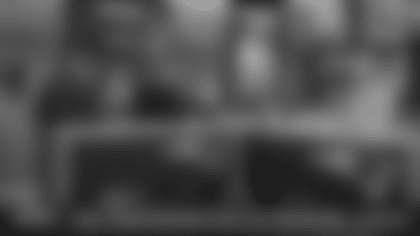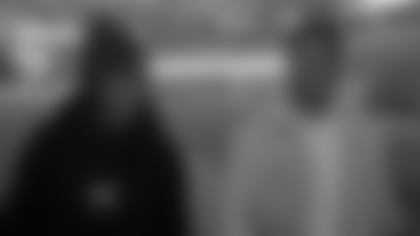New England Patriots Head Coach Bill Belichick
Press Conference
July 27, 2001
BB:Well, just on the practice schedule to get started, what we're mainly doing out there is working on the running game and some play action passes in the morning. Now yesterday afternoon was really a morning practice. What our normal schedule is, we saw it there this morning is the running game, play action passes, a little bit of one-on-one pass protection and the players in full pads. And then this afternoon, a little more emphasis on the passing game, we'll just be in shorts; shoulder pads and shorts. There will probably be a little bit less contact, so expect a little bit more contact in the morning, a little bit less in the afternoon. I think relative to last year, we've shortened practices up a little bit, you've probably noticed that, we're back in here sooner. But I think the intensity level and the tempo are a little bit better, at least that's what we're looking for. We've had two pretty good days, two good tempo days and we'd like to be able to stay at a good consistent level there. Hopefully we can do that.
I talked to Joe Panos yesterday and again today. He's going to retire from football. I was surprised by it, I think the other people that I talked to that have worked closely with Joe, the coaches, the strength coaches and so forth, all the people who have worked with him, I think it took us a little bit by surprise. But in talking to him, I certainly understand his position and it's not the first conversation I've had with a player like that. I have a lot of respect for Joe and the way Joe's played and the type of person and player he is. I understand, and football's got to end for everybody, nobody plays forever. So that's the situation there.
Also, this morning, Andy Katzenmoyer… he was here this morning and we haven't seen him. He wasn't at practice and nobody that I've talked to has heard anything from him or about him so I can't really answer anything on him other than I don't know where he is.
And yesterday, near the end of practice, Terrance Shaw fell on his shoulder and he's probably going to miss a little time. I don't know exactly, we're going to get some tests on it and that kind of thing. A week, two weeks, somewhere in there, I don't know.
And then one last thing on the counting of lineups out there, I'm sure that everybody's looked around and penciled in who's in the starting lineup and who's going first and all that. We talk a lot about the positions where we have competition and you know, somebody has to go first, somebody has to go second, but what we're really planning on doing is moving that around. We've already talked to the players involved, you know, one guy goes first today, one guy goes first tomorrow or one guy goes first for a couple of days and then we're going to switch it in a couple of days, that type of thing, so again, the positions where the competition is good and whoever the starter is is pretty unsettled for some reason or another, whatever the situation is, that's the way it is in our minds, that's the way it is in the players' minds. I would just say to you that I wouldn't read that much into it, you know which guy took the first snap, which guy took the second one at this point in time.
Q: Is Panos retiring for a medical reason or was his heart just not in it anymore?
BB:I don't want to speak for Joe, but I don't think it's medical, I think he's just retiring from football.
Q: As for Katzenmoyer, is this something that you would consider calling the authorities about? You have no idea where he is at all?
BB:No idea.
Q: So what's the next step?
BB:Well, I mean we've done what we could to try to find him, and we're looking, but… We're looking for him, you know… fellas, I can't answer, I can't answer any questions about that. It would be like me asking you where your brother is. I just have no idea.
Q: Was he at breakfast?
BB:Yes.
Q: How did he perform at practice yesterday and in the weeks leading up to this?
BB:Nothing unusual, nothing out of the ordinary.
Q: Was he fully healthy?
BB:As far as I know.
Q: Is it extremely surprising to see a surprise retirement and a guy go AWOL in one day? Do these things just sometimes occur when guys are bring evaluated?
BB:I think the retirement is, I don't know what the average is, but probably every year, every other year, a team has a situation like that. It may not be the first day of camp, it might be in May, it might be in the offseason, it might be, you know, who knows, but… For a guy just to leave camp and not say anything and not tell anybody, maybe not necessarily a coach, but one of his teammates, or somebody like that, for nobody really to have heard from him, I'd say that's a little bit unusual.
Q: Does he get fined?
BB:Again, I don't really know what we're dealing with.
Q: Are you fearing for his well-being at this point?
BB:Again, I don't know. We're looking for him. I don't know where he is. I mean, my sense is that he left; I don't think he was kidnapped but I don't know. I mean, look: this is a high-pressure business. Everybody's performance is on the line all the time and I'm not making light of the situation at all, I'm just informing you, I don't know. He's not here, I don't know where he is. Am I concerned about him? Yes. But again, I don't know what we're talking about, so I don't know what the level of concern is. If I have something else, I'll give it to you fellas, I mean maybe this afternoon, whenever it is, I'll let you know. I just don't know anything.
Q: Katzenmoyer was putting a lot of stock on his surgically repaired neck. Did he give any indication of a setback?
BB:No. And I talked to him last week after practices, you know, how he was feeling, how things were coming. And part of the reason why we did what we did last week with the injured players was to bring the contact along at a moderate level and at a controlled level, you know rather than put a guy into an 11 on 11 situation where guys can come at him and hit him from anywhere and that kind of thing. We had one-on-one and tried to monitor the contact or whatever the injury was, not just contact, so… Yeah, nothing out of the ordinary. I can't give you any explanation. I haven't talked to him to get an explanation from him, unlike I did with Joe, I mean that situation's a lot clearer.
Q: When you signed Panos, did he give any indication that he may retire from football?
BB:No, none at all. In the offseason programs, he worked hard in the offseason, he had a good offseason, he spent a lot of time here. I've had a couple of situations like this come up in the past, but again, there's a time for everybody and it comes at different times. I remember when I was in Cleveland, we had a conditioning run that was actually harder than this one – I know that's hard for some of our players to believe – but it actually was. And I remember Kevin Mack coming in after the conditioning run and saying that… he made the conditioning run, but he said he was going to retire. I have a lot of respect for Kevin Mack, he was a good football player and he put a lot into the game. I asked him, if you're going to retire, why did you go through all this, why did you go through all the training and everything and the conditioning run? He said I've been asking myself that question for the last two hours. I don't know why I did that either. He said I guess it was just the competitiveness in me, I just wanted to do it and then once I did it, I thought well maybe that would… you know, I feel better and it'd get me over the hump and you know, put that behind me and start looking forward to football, but he said, nah, I've done that. I just don't want to play anymore.
Q: Did you ask Joe [Panos] that question?
BB:Yes.
Q: What did he say?
BB:Pretty much the same thing. Just the competitiveness, he just wanted to do it.
Q: Did Joe Andruzzi get banged up a bit today?
BB:Yes, his back tightened up on him a little bit in practice, yeah, they took him to loosen it up. I don't think it's anything serious.
Q: Like Mack, did Joe [Panos] have no problem with the conditioning, I mean he passed it?
BB:Yeah, Joe ran it well, yeah. For an offensive lineman, he ran it well.
Q: What does this do for you personnel-wise?
BB:Well, we'll take a look at the personnel situation, but what our plans were coming into camp were that between [Mike] Compton and Andruzzi and Panos, that would probably be the battle for the two starting spots at guard. At this point, I think that Andruzzi and Compton are pretty far ahead of whoever's next. That's where we are today, I don't know if that's where we'll be tomorrow or next week or at the end of training camp, but I'd say that for right now, those two guys and [Damien] Woody would be the three inside players and we'll see how the other people do in the competition for the backup spots.
Q: Does Matt Light figure into that perhaps?
BB:Not now, we're going to keep Matt at tackle and let him play tackle and compete with Greg [Robinson-Randall] or whoever the two best tackles are. Right now Greg and Matt are on the right side and Adrian [Klemm] and Kenyatta [Jones] are on the left side and Grant Williams is our swing tackle. So we really have five guys playing tackle and I'm not sure who the two best are. Whoever they are, hope those will be… we'll put those two guys in there, they could both theoretically come from the same side at this point, but… We're going to leave that in the mix and see if we can… Like I said, one of the top priorities for us in training camp is to decide who our two tackles are. Once that's established, once those guys can step up and show that they're the guys, then we'll out them at tackle and I think that will be a big step for us, whenever that occurs.
Q: Did you try to increase the team's toughness this offseason?
BB:Definitely, yes. If you want a tougher team, you've got to bring in tougher players. If you want a faster team, you've got to bring in faster players. If you want a taller team, you've got to bring in taller players. You can't expect them to grow when they get here. You're not going to turn slow guys into fast guys. If a guy's a tough guy, he's probably going to be a tough guy on your team, whether he's coming out of college or whether he's coming out of… certainly in the NFL the players are a little easier to evaluate because we've seen them in this competition. That's definitely a priority for us, to be a tougher, physical team. And therefore, whenever we talk about bringing players onto the team, part of the conversation is, you know will this guy make us a tougher, more physical team. In the same light, if you want to be a faster team, then you ask yourself the same questions. You know, this guy, if he's on the field, does that make us a faster team?
Q: What is a football "tough guy" by definition if they're all very physical specimens?
BB:There's two main types of toughness, there's physical toughness and there's mental toughness. The physical toughness is just the raw, putting bodies on bodies, and contact and bringing explosiveness to the game. Mental toughness is the ability to pretty much deal with any situation that could come up mentally, whether it be personally, internally or externally or team-oriented or whatever it happens to be. And then, sure, anybody's going to display a certain amount of those qualities or they wouldn't be at this point and I think what separates it is the consistency. You can put a guy on and watch him play 50 or 60 plays, and play them all at a very high level of competitiveness and toughness, and maybe the next guy plays 30 of them. You just don't see it every play, there's a difference in the level of the competitiveness of the play over a large number of plays. Any one or two given plays might look the same. It's such a long season, by the time you go through training camp, the preseason games or the regular season, if a guy's a starting player for you, and if he's contributed, he's gonna play probably 1,000 plays, somewhere in that neighborhood, 900 up, so that's a lot of plays. So it's a big difference if he's playing 400 of them at a high level of competitiveness or whether he's playing, say, 900 at a high level. That's 500 plays, that's seven or eight games.
Q: Is there a team-wide mindset that can take place? Can it feed off of a leader?
BB:You know, it's a good question. I think team chemistry is a very unique… it's unique and it's hard to precisely verbalize or quantify. My experience has been that every one is different. Even the same team is different year to year because there is some situation or set of circumstances or whatever and it might be beyond the control of the team or it might not, but they're all different. Even though you might have the same core group of players together in consecutive years, the other people that come into the mix and sometimes the coaches or sometimes the other people connected with the team, the trainers or equipment people or just characters that somehow or another fit into the team that in one way or another effect the personality and the chemistry and the inter-relationships that we all go through, especially when you have a 50-some man roster and 10-plus coaches and other people in the organization, you're getting up there around 70-80 people that are together on a daily basis and go through a lot of things together. And how that chemistry works, it's different from year to year. And then when you change a couple of things in the situation, some event, like Robert Edwards, or some event that happens to a particular player that's very unique to that season or that team that maybe no other team has experienced, things like that can effect it too. My attitude has always been to take the team and let them grow to their own personality. Try to give them some direction in terms of what we're looking for and what we think it takes to win but count on the fact that you put in those roles will emerge as leaders, or… you know, I hate to overuse the word "leader" because what I try to tell the team is that we're all stockholders. We all have a share of the team, regardless of whether you're a quarterback or a linebacker or a coach or whatever, we all own a share in it, we all contribute to it, everybody's a leader. So, just the way you go about your job and the way you approach what you're doing and how you do it and how you interact with people, it shows a certain degree of leadership. You could be a rookie, or you could be the last, 53rd guy on the roster or whatever it is, but everybody sees what you do and they're either going to respect it or not respect it. So, those are the things that I kind of try to tell the team, but then it always happens a little bit differently each year. I'm sure it will be that way this year, too.
Q: Did you try to bolster the mental toughness of the team more than the physical toughness?
BB:Well, mental more than physical. I think it's probably a combination of both. And to a certain degree I think they go hand-in-hand. A lot of physically tough players are also mentally tough. I won't say all, but a lot are. What we really try to do in the offseason is to identify from a team standpoint what were our strong points, what were our weak points, how we could utilize our strong points more to our advantage, and how we could either minimize our weak points and avoid them or if we had to deal with them try to strengthen them so that they would be adequate to maybe above average. So that that was done on a team-wide basis and then it was done on an individual basis too, each particular player, this is their strengths and weaknesses and how it fits into the team and so forth. All those things were addressed and we tried to put a plan together to – however it's done and there's a lot of different ways to do it, part of it's the offseason program, part of it's scheme, part of it's training camp, part of it's coaching responsibilities or the addition of a coach or the change of an emphasis point – there's a lot of different things that went into play in the offseason and looking forward into the season that we'll try to do to strengthen all those areas or address them in one way or another. But mental and physical toughness are definitely two of the points. One of the biggest things that I've seen already is just the improvement that we've had in the offseason program, both in the participation and in the intensity of workouts. And now that the workouts are over, the test resultsof what the players have accomplished this year relative to last year or where a particular player is now relative to where he was at an earlier point in time. It's not 100 percent, it's not perfect, but it's progress.
Q: With [Antowain] Smith and Edwards out, is it a negative for [Kevin] Faulk and [J.R.] Redmond to get so many reps and maybe get burned out?
BB:I don't see how either one of those guys could be burned out. I mean, Redmond didn't do much until the middle of August last year and it took him until the middle of the season before he really got going. I think what he needs is a good training camp and I think that's what he's ready for. I think Kevin needs to reestablish some things in his game as well and this is a good opportunity for him to do that. Had those other guys been able to take all of the reps that would have come their way, I think it would have given the other backs, Walter [Williams] and Kevin and J.R. fewer opportunities to establish that and now they have more opportunities and I'm sure that they're going to try to take advantage of them. I hope they are, well no, I'm sure they are. They've worked hard and I think that's what they're looking forward to, to show what they can do.
Q: How close are Edwards and Smith to returning?
BB:I don't know. I don't know. He's not ready yet and I don't know when he'll be ready. Edwards? Oh, I'm sorry I thought you meant Antowain Smith. [
**Q: Edwards or Smith] Oh, yeah, I'm not sure about Edwards. I don't think he's too far away, I mean we're not talking about a month or a season-ending injury or anything, but the groin's a tough one because there's really three muscles involved down there and they're kind of interrelated, it's not like a hamstring or a calf or some other muscle where it's a lot easier to just identify here's the one problem and then you can watch it get better. The groin's a little bit tougher, so… Some guys can pull a groin and play on it the next day and have it not really effect them, and other guys can pull a groin and be out for two weeks. It just kind of depends on how, physiologically, the injury occurs. So we'll just have to take him [Edwards] day-by-day. I'm not trying to teach a health course here, but… Antowain Smith, I don't know. When Mike [Woicik] feels like he's ready to attempt the test again, then we'll run him.
Q: So the protocol is through Mike Woicik?
BB:Well Mike works with the players and works with their physical conditioning. You see him out there at practice, running them and doing different drills with them and so forth. When he feels like a player's ready to run again, then he'll run him.
Q: How has Richard Seymour's progress been?
BB:I think about what we expected. He's got some things to learn, but if he shows up on a fairly regular basis out there with positive plays. There are things that he still needs to spend time on and pick up, and if he gets more reps on it, then hopefully, that will improve. I think the real measure on some of these guys is going to be the Giant week, after they've been at camp for seven, eight days, nine days, whatever it is, get through two-a-days, get the installation in, get multiple days working similar techniques and getting the timing down and getting through the soreness and the contact and all that. The practices against the Giants I think will be a good look for a lot of our young players on really where they are. Some guys might move ahead in the next day or two and not be able to sustain it or it might take another guy a little while to kind of get the feel for things but then once he starts showing up on a more consistent basis. That's been my experience through the years, a guy who looks good the first day of camp isn't always the guy that looks good the second week of camp. Usually by the second week of camp, after they've had a chance to get going and get settled then… Especially going against a good team and a different team like the Giants, I think that will be good for guys like Richard.
**


